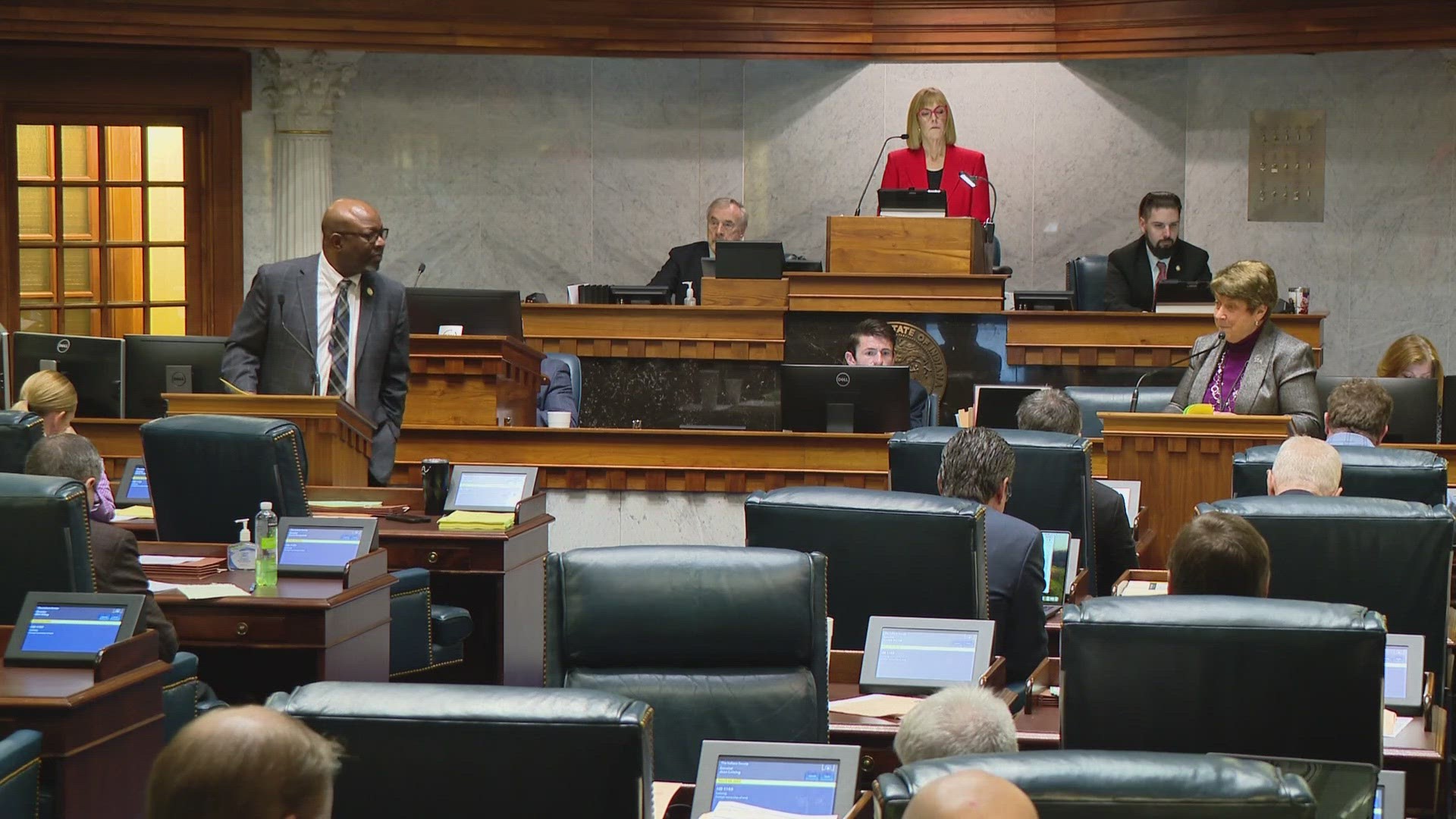INDIANAPOLIS — Lawmakers in the Indiana Senate passed 19 bills Tuesday on various topics, among them antisemitism, child labor and contraception.
In a vote of 42 to 6, the Senate passed House Bill 1002, which defines antisemitism at Indiana’s public education institutions.
The original bill, which passed unanimously out of the House, included specific examples of antisemitism and a definition of it from the International Holocaust Remembrance Alliance.
The Senate’s Education Committee removed those examples and any mention of the IHRA, causing many in Indiana’s Jewish community to withdraw their support for the bill.
According to the Anti-Defamation League, incidents of antisemitism have gone up 360% since the Oct. 7 attacks on Israel by Hamas.
“There’s still six Americans that are prisoners. I wish this bill would say that American foreign policy should be that you got 24 hours to bring them home or you will know no depth of hell that the United States of America would go to bring them back. I wish that’s what this bill said. It doesn’t, but this is what’s possible,” said the bill’s sponsor in the Senate, Republican Sen. Aaron Freeman.
The Jewish Community Relations Council called the passage of 1002 without the IHRA definition of antisemitism unconscionable. The council released a statement, which said, in part:
"We remain hopeful that the Indiana General Assembly will protect Jewish students in Indiana by returning House Bill 1002 to the House-passed version. We look forward to working on this bill further in conference committee.”
The Combat Antisemitism Movement released this statement after the Senate passed HB 1002:
"The Indiana Senate has contravened the bipartisan consensus of 35 other states and failed to protect Jewish students and faculty at Indiana's public education institutions by passing HB 1002 without the International Holocaust Remembrance Alliance (IHRA) Working Definition of Antisemitism and its 11 examples. The IHRA definition, which is broadly supported by the Jewish community in Indiana and worldwide, is necessary to clearly identify antisemitic incidents. Without it, authorities and schools lack the tools needed to monitor and effectively combat the rising antisemitism on campuses. We strongly urge the Indiana General Assembly to take the bill to a conference committee and incorporate the IHRA definition of antisemitism into the legislation."
Critics of the original House version said it would stifle free speech on college campuses and any criticism of actions by the State of Israel.
The Senate also passed another bill that’s generated debate, House Bill 1426.
The original version called for hospitals to be required to offer long-acting reversible contraception to Medicaid recipients after they give birth.
IUDs were in the original bill but taken out in committee, leaving under-the-skin contraceptive implants as the only option mentioned.
Critics of the bill said it limited birth control options for women on Medicaid.
Democratic Senator Shelli Yoder, who voted against the 1426, issued this statement after the vote:
“HB 1426 does not provide options. Instead, it creates a tiered system of birth control access in our statute. It is legislators saying one form of birth control will be preferred by the state based on ideology and not science. Can you imagine this body putting our religious ideology into statute regarding the best orthopedic treatments? The best ways to address blood pressure or how to treat prostate cancer? Absolutely not. We wouldn't do that.
“But, apparently, it's okay for politicians to weigh in, limit and decide the reproductive care available for women. It's gross, and it's unacceptable, and I won’t have any part of it.”
Another bill, passed by the Senate addressed the employment of minors.
House Bill 1093 removed restrictions on hours that teens can work and removed agriculture as a hazardous occupation.
The Senate unanimously passed House Bill 1183, which bans countries the U.S. considers foreign adversaries from buying farmland in Indiana or land that’s 10 miles from a military base.
“I think this bill will keep the adversarial countries from purchasing farmland, which we really need to produce food and provide food security four our country, for our nation,” said Republican Senator for District 42, Jean Leising. “I think that’s really pretty important, and on the military side, hopefully it keeps us safe in that regard."
The work is far from over on bills where the Senate and House passed different versions.
Those bills go to a conference committee, made up of members from both parties and both chambers, to see if a compromise can be reached before sending a bill back to its original chamber of origin for a final vote.

